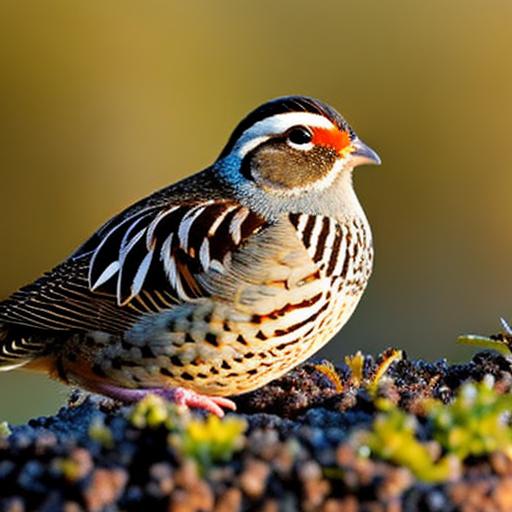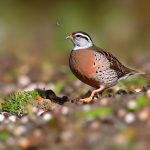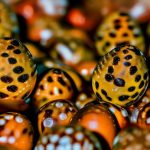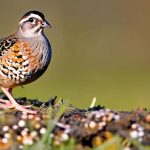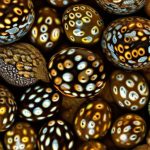Quails are small, ground-dwelling birds that are commonly found in North America. During the winter months, quails require special care to ensure their health and well-being. Understanding their specific needs during this time is crucial for their survival. Quails are sensitive to cold temperatures and can easily succumb to hypothermia if not provided with adequate shelter and warmth. Additionally, their food and water requirements may change during the winter, as their natural food sources become scarce. It is important to be aware of these needs and make necessary adjustments to ensure the quails remain healthy and comfortable throughout the winter season.
Quails have a natural instinct to seek shelter during cold weather. In the wild, they will often burrow into the ground or seek out dense vegetation to protect themselves from the elements. In a domestic setting, it is important to provide them with a suitable shelter that offers protection from wind, rain, and snow. Additionally, quails require bedding material that will keep them warm and dry. Understanding their natural behavior and providing them with a safe and comfortable environment is essential for their well-being during the winter months.
Key Takeaways
- Quail need protection from cold temperatures and wind during winter
- Proper shelter should be provided with dry bedding to keep quail warm and comfortable
- Heat lamps and heaters can be used to maintain a suitable temperature in the quail’s shelter
- Good ventilation is essential to prevent moisture buildup and maintain air quality
- Warm water and nutritious food should be offered to quail to help them stay healthy during winter
- Regular monitoring of quail’s health and behavior is important to identify any issues early on
- Emergency plans should be in place to protect quail from extreme weather conditions
Providing Proper Shelter and Bedding
When it comes to providing shelter for quails during the winter, there are a few key considerations to keep in mind. Firstly, the shelter should be well-insulated to protect the quails from cold temperatures. This can be achieved by using materials such as straw or hay to line the floor of the shelter and provide additional warmth. Additionally, the shelter should be draft-free to prevent cold air from entering and causing discomfort to the quails. It is also important to ensure that the shelter is well-ventilated to prevent the buildup of moisture, which can lead to respiratory issues for the quails.
In addition to providing proper shelter, it is important to consider the bedding material for the quails. The bedding should be absorbent and provide insulation to keep the quails warm and dry. Materials such as pine shavings or straw are commonly used for bedding, as they provide good insulation and absorb moisture effectively. It is important to regularly clean and replace the bedding to maintain a clean and healthy environment for the quails. By providing proper shelter and bedding, quail owners can ensure that their birds are comfortable and protected from the harsh winter weather.
Using Heat Lamps and Heaters
In some cases, providing adequate shelter and bedding may not be enough to keep quails warm during the winter months. In these situations, heat lamps or heaters can be used to provide additional warmth to the quail’s living space. Heat lamps are a popular choice for providing supplemental heat, as they can be easily installed in the shelter and provide a consistent source of warmth. It is important to position the heat lamps at a safe distance from the quails to prevent any risk of burns or fires. Additionally, it is crucial to regularly check the heat lamps for any signs of damage or malfunction to ensure the safety of the quails.
Another option for providing warmth to quails is the use of heaters specifically designed for poultry or small animals. These heaters are designed to provide a safe and controlled source of heat, making them suitable for use in quail shelters. When using heaters, it is important to follow the manufacturer’s instructions for installation and operation to ensure the safety of the quails. By using heat lamps or heaters, quail owners can provide their birds with the additional warmth they need to stay comfortable and healthy during the winter months.
Ensuring Good Ventilation
While it is important to provide warmth and protection from the cold, it is equally important to ensure good ventilation in the quail’s living space during the winter months. Proper ventilation helps to remove excess moisture from the air, which can lead to respiratory issues for the quails if left unchecked. Additionally, good ventilation helps to maintain air quality and prevent the buildup of harmful gases such as ammonia. It is important to strike a balance between providing warmth and ensuring good ventilation to create a healthy environment for the quails.
To ensure good ventilation in the quail’s shelter, it is important to provide adequate airflow without creating drafts that could cause discomfort to the birds. This can be achieved by installing vents or windows that can be opened or closed as needed to regulate airflow. Additionally, it is important to regularly clean and maintain the ventilation system to prevent any blockages or obstructions that could impede airflow. By ensuring good ventilation in the quail’s living space, owners can create a healthy environment that promotes respiratory health and overall well-being for their birds during the winter months.
Offering Warm Water and Nutritious Food
During the winter months, quails may have difficulty finding natural sources of food and water due to snow cover and freezing temperatures. It is important for quail owners to provide their birds with warm water and nutritious food to ensure their health and well-being during this time. Quails require access to fresh, unfrozen water at all times, as dehydration can quickly become a serious issue in cold weather. Providing warm water can help prevent freezing and ensure that the quails have access to hydration when they need it most.
In addition to warm water, quails also require nutritious food to maintain their health during the winter months. Their natural food sources may become scarce during this time, so it is important to provide them with a balanced diet that meets their nutritional needs. This can include commercial quail feed, as well as supplemental foods such as grains, fruits, and vegetables. It is important to monitor their food intake and adjust their diet as needed to ensure they are receiving adequate nutrition. By offering warm water and nutritious food, quail owners can help their birds stay healthy and strong throughout the winter season.
Monitoring Quail’s Health and Behavior

During the winter months, it is important for quail owners to closely monitor their birds’ health and behavior to ensure they are adapting well to the cold weather. Cold temperatures can put stress on quails’ immune systems, making them more susceptible to illness and disease. It is important to regularly check on the quails for any signs of illness or distress, such as lethargy, loss of appetite, or respiratory issues. Additionally, it is important to monitor their behavior for any signs of discomfort or distress, such as huddling together for warmth or seeking out additional shelter.
In addition to monitoring their health and behavior, it is important to take proactive measures to prevent illness and disease in quails during the winter months. This can include regular cleaning and disinfection of their living space, as well as providing them with a balanced diet and access to clean water. It is also important to minimize stress on the birds by handling them gently and avoiding unnecessary disturbances. By monitoring their health and behavior and taking proactive measures to prevent illness, quail owners can help ensure that their birds remain healthy and resilient throughout the winter season.
Implementing Emergency Plans for Extreme Weather
In extreme weather conditions such as blizzards or ice storms, it is important for quail owners to have emergency plans in place to protect their birds from harm. This can include having backup heating sources available in case of power outages, as well as extra supplies of food and water in case access becomes limited. It is also important to have a plan for evacuating the birds to a safer location if necessary, such as a heated indoor space or a designated emergency shelter.
Additionally, it is important for quail owners to stay informed about weather forecasts and be prepared to take action if severe weather is expected. This can include taking steps to reinforce their birds’ shelter and secure any loose objects that could pose a danger in high winds. By implementing emergency plans for extreme weather, quail owners can help ensure that their birds remain safe and protected during challenging winter conditions.
In conclusion, understanding and meeting quail’s winter needs is essential for their health and well-being during this challenging time of year. By providing proper shelter and bedding, using heat lamps and heaters when necessary, ensuring good ventilation, offering warm water and nutritious food, monitoring their health and behavior, and implementing emergency plans for extreme weather, quail owners can help ensure that their birds remain healthy and resilient throughout the winter season. With careful attention and proactive care, quails can thrive even in cold weather conditions, bringing joy and beauty to their owners year-round.
If you’re looking for tips on keeping quail warm in winter, you might also be interested in learning about the importance of providing proper nutrition for geese. Poultry Wizard has a helpful article on whether geese can eat chicken feed, which can provide valuable insights into ensuring the well-being of your feathered friends during the colder months. Check out the article here to discover more about this essential aspect of caring for your poultry.
FAQs
How can I keep my quail warm in winter?
Quail can be kept warm in winter by providing them with a well-insulated coop, using heat lamps or heating pads, and providing extra bedding for insulation.
What temperature is ideal for quail in winter?
Quail are comfortable in temperatures between 50-70 degrees Fahrenheit. It’s important to monitor the temperature in their coop and make adjustments as needed.
Should I use heat lamps for my quail in winter?
Heat lamps can be used to keep quail warm in winter, but it’s important to use them safely and to monitor the temperature to prevent overheating.
What type of bedding should I use for my quail in winter?
In winter, it’s beneficial to use a thicker bedding such as straw or pine shavings to provide extra insulation for the quail.
Do quail need extra food in winter to stay warm?
Quail may need extra food in winter to help them stay warm, as they will use more energy to keep themselves warm in colder temperatures. Providing high-energy foods such as seeds and grains can help them maintain their body temperature.
Meet Walter, the feathered-friend fanatic of Florida! Nestled in the sunshine state, Walter struts through life with his feathered companions, clucking his way to happiness. With a coop that’s fancier than a five-star hotel, he’s the Don Juan of the chicken world. When he’s not teaching his hens to do the cha-cha, you’ll find him in a heated debate with his prized rooster, Sir Clucks-a-Lot. Walter’s poultry passion is no yolk; he’s the sunny-side-up guy you never knew you needed in your flock of friends!

